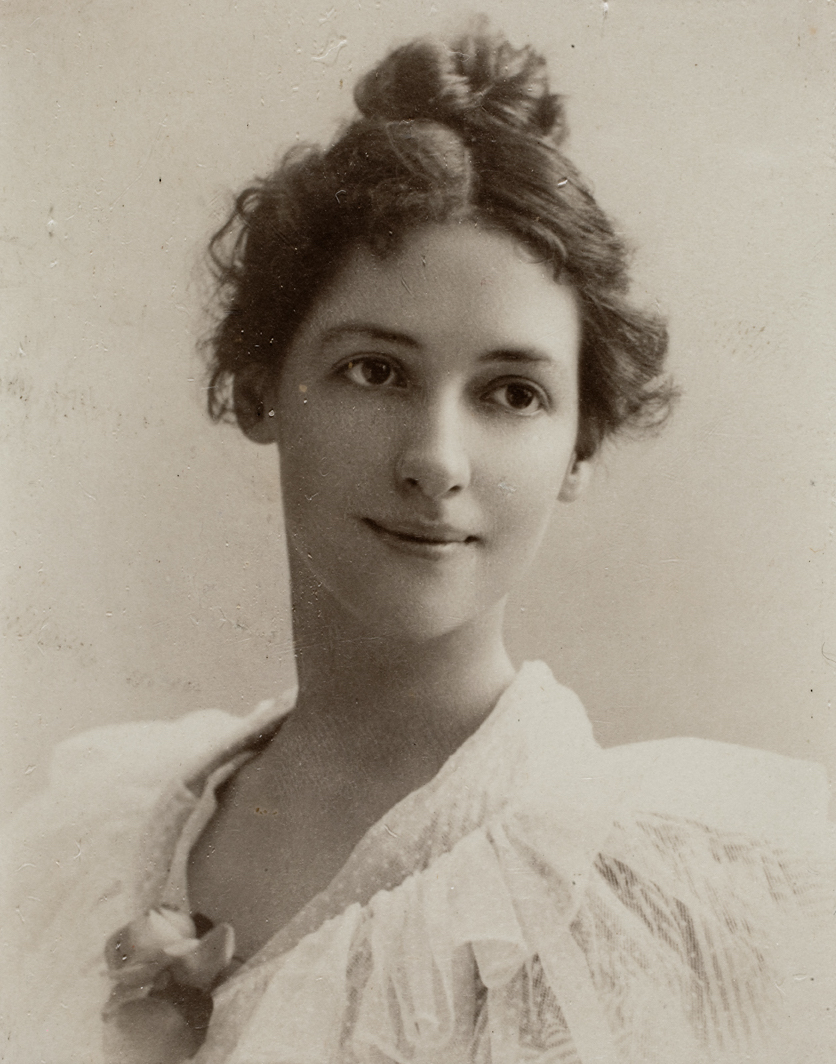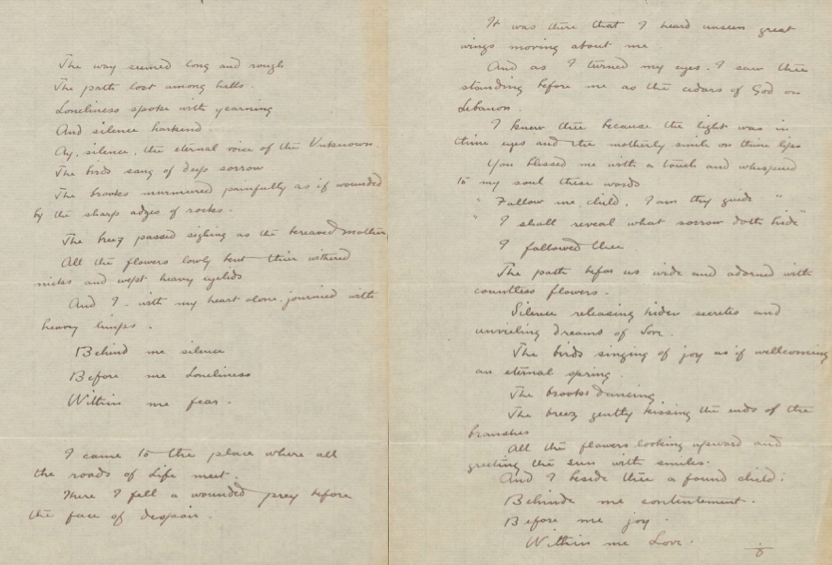edited by Francesco Medici and Glen Kalem
Kahlil Gibran tried out his early poetry on Josephine Peabody (1874-1922), a fine American poet and dramatist, and instructor in English at Wellesley College from 1901 to 1903. He attempted to explain what he was up to in his Arabic poems to his friend, and took with her his first tottering steps in English composition.
One of those immature prose poems remains, dating probably from 1904, among Josephine’s papers in Harvard University Library:
The way seemed long and rough
The path lost among hills.
Loneliness spoke with yearning
And silence harkend.
Ay, silence, the eternal voice of the Unknown.
The birds sang of deep sorrow.
The brooks murmured painfully as if wounded by the sharp edges of rocks.
The breeze passed sighing as the bereaved mother.
All the flowers lowly bent their withered nicks and wept heavy eyelids.
And I, with my heart alone, journeyed with heavy limps.
Behind me silence
Before me Loneliness
Within me fear.
I came to the place where all the roads of Life meet.
There I fell a wounded prey before the face of despair.
It was there that I heard unseen great wings moving about me.
And as I turned my eyes, I saw thee standing before me as the cedars of God in Lebanon.
I knew thee because the light was in thine eyes and the motherly smile on thine lips.
You blessed me with a touch and whispered to my soul these words:
“Follow me, child, I am thy guide.
I shall reveal what sorrow doth hide.”
I followed thee.
The path before us wide and adorned with countless flowers.
Silence releasing hidden secrets and unveiling dreams of Love.
The birds singing of joy as if welcoming an eternal spring.
The brooks dancing.
The breeze gently kissing the ends of the branches.
All the flowers looking upward and greeting the sun with smiles.
And I beside thee a found child;
Behind me contentment.
Before me joy.
Within me Love.